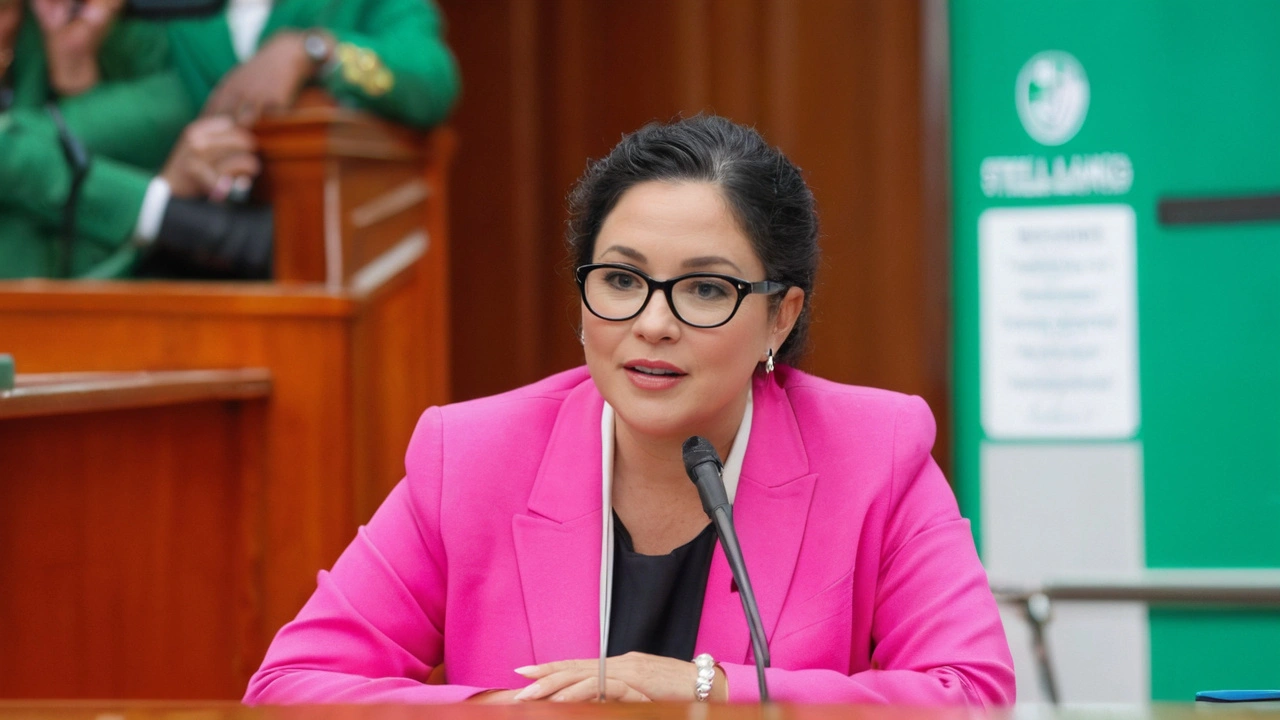Stella Lang'at Rejected: The Story Behind the Decision
The recent rejection of Gender Cabinet Secretary nominee Stella Soi Lang'at by the National Assembly Committee of Appointments has ignited a myriad of discussions and debates. Being the only nominee not approved amongst the President’s 20 selections, it’s crucial to delve into the specifics of her disqualification and the broader implications for the Ministry and the nation at large.
The Committee's Verdict
On the surface, Lang'at’s rejection appears to hinge broadly on two pivotal aspects; her perceived lack of adequate knowledge and experience directly related to the Ministry of Gender, Culture, Arts, and Heritage, and her career history characterized by frequent job transitions that some argue compromised long-term strategic acumen.
The leader of the National Assembly Majority, Kimani Ichung'wah, did not mince words in his explanation. He noted that despite Lang'at's nearly three decades of public service, her specific expertise related to the gender docket was found wanting. The Committee on Appointments scrutinized her understanding of various administrative and technical issues that are crucial governance benchmarks for the Ministry she was chosen to helm. These included key areas such as gender policy formulation, cultural preservation, and heritage management – where she apparently fell short.
Moreover, another significant point of concern articulated by Ichung'wah was Lang'at's professional trajectory. Having occupied roles in multiple ministries, including the State Department of Public Service and the Labour Department, her portfolio, although vast, was perceived as fragmented. These frequent role transitions were interpreted as a lack of depth in long-term strategic planning, which is essential for driving substantial reforms in any ministry, especially one as pivotal as the Ministry of Gender, Culture, Arts, and Heritage.
Lang'at's Defense
In defense of her qualifications, Lang'at underscored her extensive 29-year public service record, including her contribution to the establishment of the State Department of Gender in 2004. She asserted her experiences had endowed her with a robust understanding of the gender sector's inner workings.
Lang'at also put forward her vision for the Ministry, emphasizing her commitment to addressing deeply entrenched societal issues like female genital mutilation (FGM) and early marriages. These are endemic problems that necessitate a multifaceted approach, blending legislative action with grassroots campaigns – a stance Lang'at highlighted as part of her strategic agenda during the vetting process.
Looking Ahead: The Implications of the Rejection
The rejection of Lang'at is not merely a setback for her career but also signals the necessity for a nominee who can evidently demonstrate both technical expertise and long-term administrative capabilities. The Ministry of Gender, Culture, Arts, and Heritage, now more than ever, requires leadership equipped to confront complex societal challenges with informed vigor and sustained advocacy.
With 19 other nominees cleared to assume their roles, the focus now shifts to filling the gap left by Lang'at. The approved candidates, including notable names like Kithure Kindiki for Interior, Debra Barasa for Health, and Julius Migos for Education, carry the weight of expectations to drive forward the national agenda across multiple fronts.
The President is now tasked with nominating a new candidate for the Gender CS position, one who must undergo the scrutiny of the National Assembly Committee of Appointments once more. This underscores the importance of presenting a nominee thoroughly well-versed in administrative nuances, technicalities, and possessing a resilience for long-term policy implementation.
A Step Towards Greater Accountability
This incident marks a significant precedent in the vetting process, reinforcing the critical need for exceptional standards when appointing senior government officials. The rejection serves as a reminder that mandates for these influential positions are not merely ceremonial but require candidates to exhibit a profound grasp of their ministry's scopes and challenges.
In conclusion, while Lang'at's disqualification might seem a solitary instance, it is emblematic of a rigorous, and perhaps much-needed, quality control mechanism. It's a clarion call for heightened accountability within the realms of public service appointments. The President’s next nominee for the Gender CS role will inevitably be one to watch, embodying not just a benchmark for qualifications but also reflective of the specific skill set required to lead national transformative agendas effectively.
